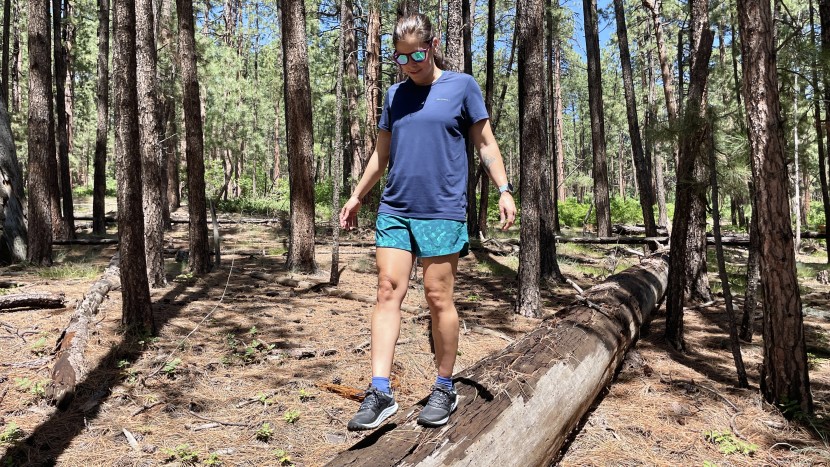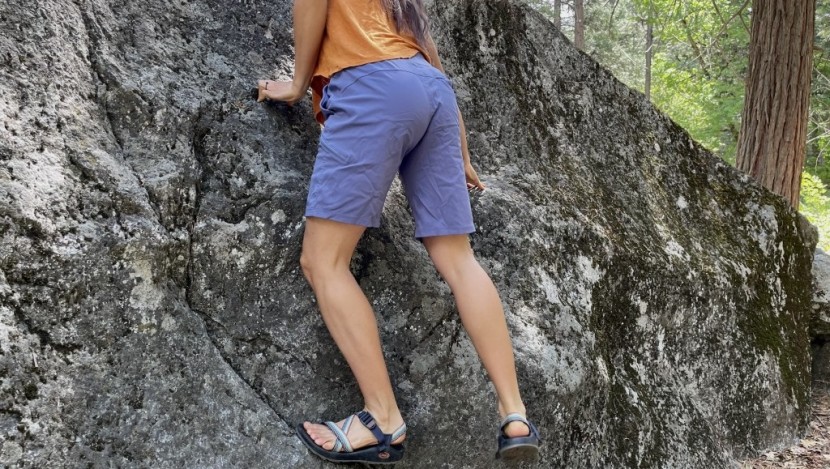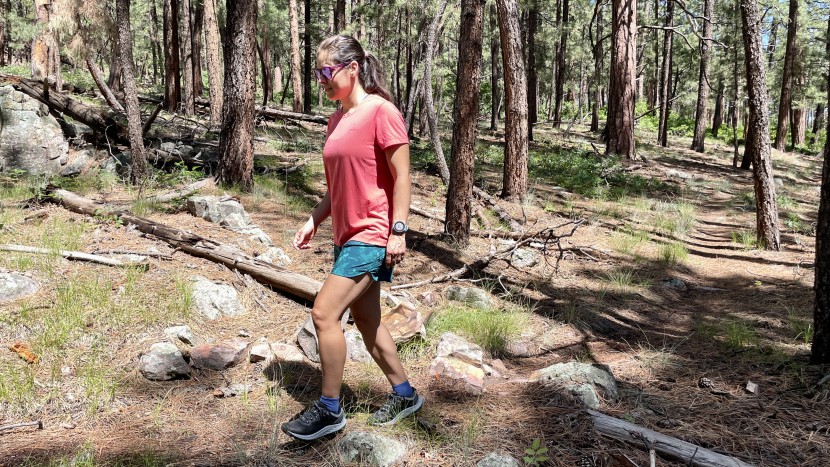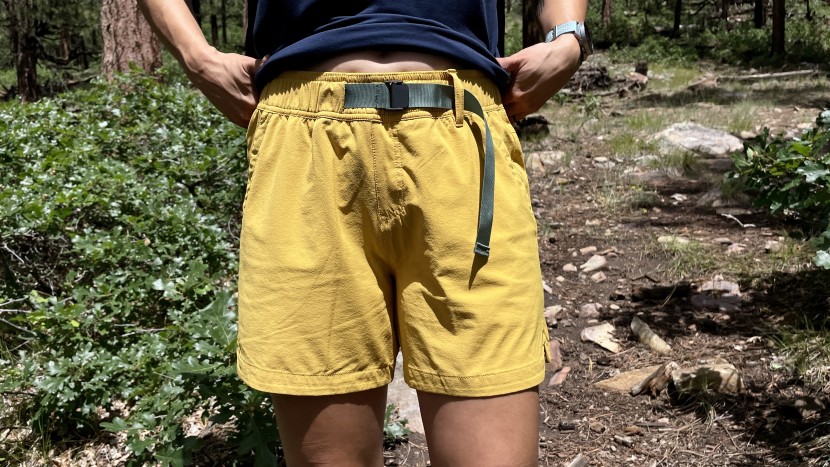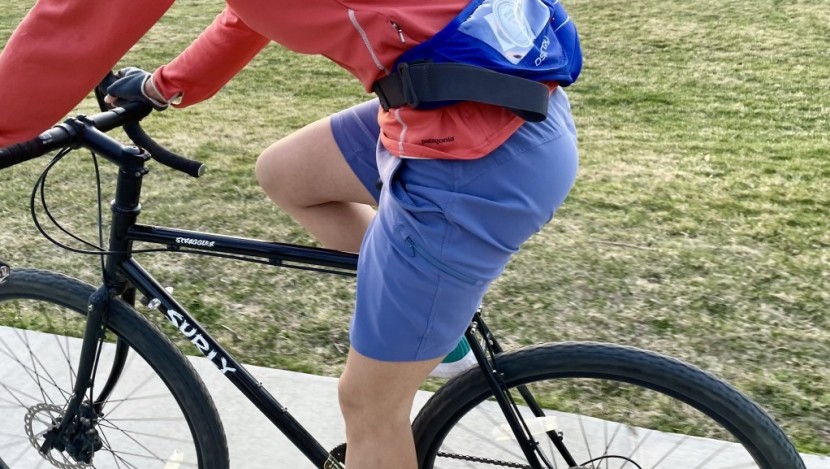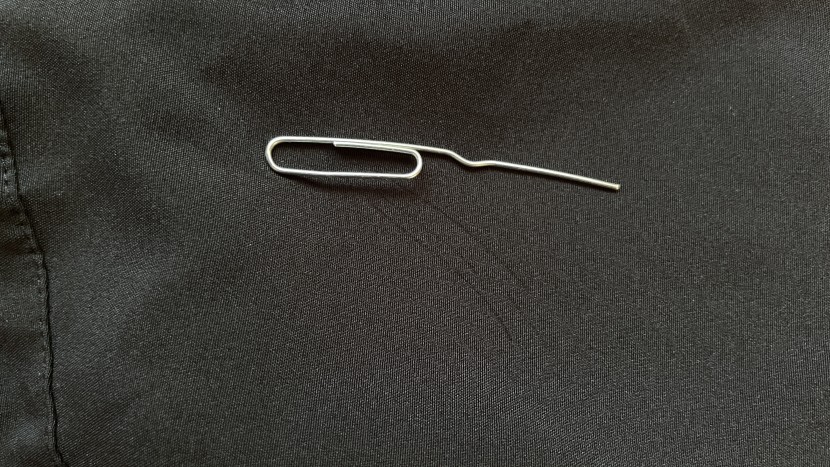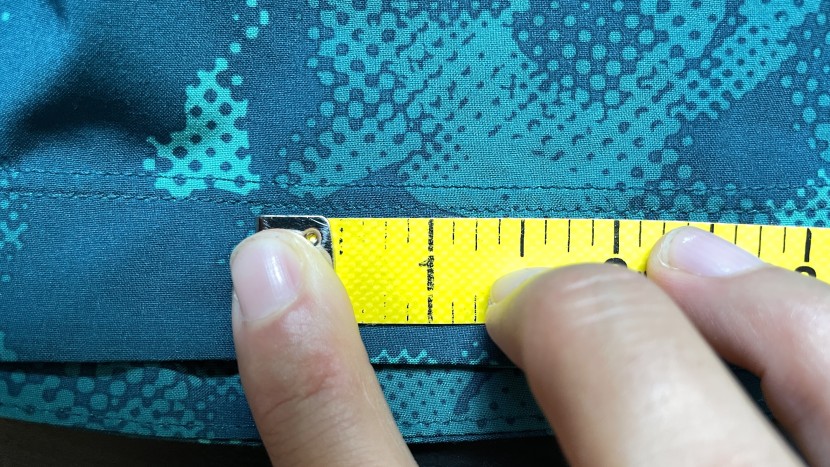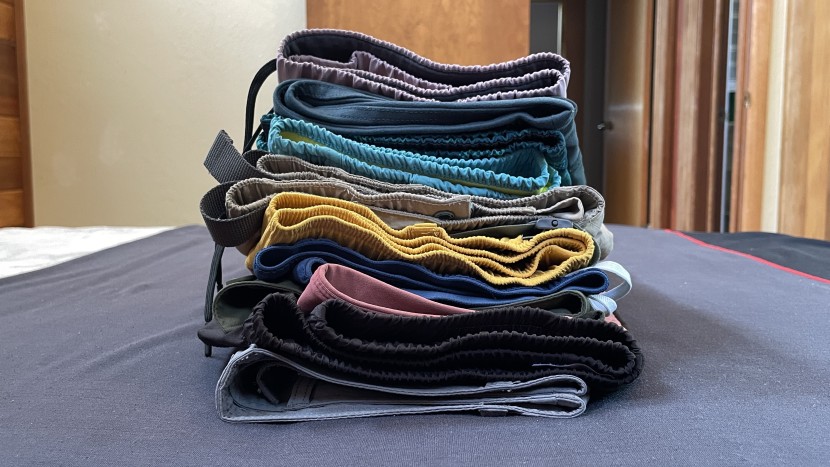To test these hiking shorts, we do as much hiking and moving around as possible. From mountainous and rocky approaches to the flattest of dirt or paved trails, we seek to embody all modes of hikers. After making a list of what we believe makes up a top-notch piece of trekking apparel, we came to prioritize certain aspects more than others. For example, comfort and mobility are the most important factors, in our opinion. When it comes to being outside all day, no matter the terrain, we want effortless movement and confidence in the way the shorts fit and make us feel. Next in line, the fabric itself comes under scrutiny. We assess its breathability and flex and then perform various tests to determine how quickly the fabrics absorb water and then dry again once soaked. We also consider the versatility of the shorts (which includes notes on style) and any extra features each may offer. To help truly distinguish one pair of shorts from the other, we capture data across a series of submetrics before averaging them and evaluating them against our test experiences to come up with a final score.
Comfort and Mobility
The first thing we do is wear each pair of shorts casually for the whole day, even if we are sitting in front of a computer or running errands. This allows us to get a general feel for the shorts before taking them to the trails. We pay attention to how they sit against our bodies and whether or not we have to adjust them periodically for comfort. We also consider sizing and how they fit our hips and thighs. When it comes time for the actual hiking, we pay attention to important mobility requirements, such as the ability to high-step and stretch our limbs comfortably, no matter the intensity.
For our back-to-back testing, we do five deep squats and then scale a flight of stairs in every short, one after the other, to gain a good hands-on feel for how the shorts perform in this metric. Those pairs that aren't particularly flexible will often produce resistance to our movements, which, in turn, creates discomfort or loss of mobility over certain terrain or after long durations. We dock points in our scoring for such results. Lastly, we take note of things like waistband design and whether or not any special features affect our comfort in use. This includes things like pocket design, pocket accessibility, and whether or not our mobility changes when carrying a phone.
Fabric Performance
The type of material each short is made of comes under scrutiny for this metric. Typically, synthetic blends are the most breathable and moisture-wicking. We research the material each pair of shorts is made of and then pay attention to how well that material breathes during our hikes, as well as how effective the cut of the shorts proves to be in facilitating moisture-wicking on hotter days. When we sweat, we want to see whether or not the shorts trap our body heat close to the skin or if they can help regulate our temperature to keep us dry and cool. Usually, the waistband is an area that suffers from a lack of breathability, particularly when wearing a pack with a waistbelt over the top. For this reason, we take note of any extra venting features incorporated into the design, like perforated holes, mesh, or wide and roomy leg openings (that help airflow in and out of the shorts). These aspects add to the short's overall score in this metric.
For our lab-like testing, we performed a soak test across the entire lineup, placing a 4-inch section of fabric from one leg of each short into a container of water and then timing how long it takes for the fabric to become completely soaked through. Often, shorts with a DWR (durable water repellent) treatment take much longer to hit saturation. Once soaked, we then initiated our dry test, hanging each pair to dry indoors, with no direct sunlight, and applying the airflow from a blow dryer set to “air-only” (no heat). This is meant to simulate how well the fabric will likely dry on the body while hiking when removed from direct sunlight but still receiving consistent airflow. Once again, we record the time it takes for the fabric to completely dry to the touch. This helped us gauge “quick-drying” claims often made by manufacturers.
In general, classic tests like holding the fabric up to the light to see how much light comes through or placing that fabric gently against our mouth to see how well we can inhale through the fabric also come in handy with determining subtle differences between each model. Although we used to assess features as an independent metric, we've recently made a change, now integrating such evaluations into metrics that consider the value any single feature brings to the design, be it comfort and mobility, fabric performance, versatility, or strength in construction. For example, we will assess breathability features and extras like sun protection (UPF rating) or odor control as a part of our Fabric Performance assessment. Stain resistance is something we take into account as a part of our consideration of construction quality. Overall, we tend to score shorts a little higher if they are built with useful fabric tech that influences their overall performance and the comfort of the wearer.
Versatility and Style
A day in the life of a hike often looks like this: after long miles on the trail, you are happily tired, hungry, and eager to relax and enjoy the accomplishments of the day with friends, so you plan a pitstop somewhere in town on the way home. It is in these scenarios that it may come to matter to you whether or not the clothing you've chosen for your hike is equally as appealing and appropriate to wear about town. We find that high-tech, athletic designs are often not as mainstream “fashionable” as those designed with a more classic or vintage appeal. Then again, style is a very subjective subject, and outdoor wear has certainly found its way into common culture in recent years, appearing in many places where it may not have been welcomed before. Similarly, there are many shoppers who seek shorts that will serve them well for other activities beyond just hiking or across shoulder seasons when the temperatures may drop early and late in the day, but midday still brings the heat. A single well-designed pair of shorts, even if it costs a bit more upfront, can end up being your go-to clothing for regular hikes as well as a great choice for days out in a kayak or SUP, or the perfect addition to your luggage when you know a diverse range of activities lies ahead. Such versatility can be a valued feature in any type of outdoor apparel, so we take the time to assess every pair of hiking shorts through this lens as well.
Scoring for style is a little tricky, but when blended with overall versatility, it gives us a broad picture of how useful any pair of shorts may prove to be once integrated into your wardrobe. We ask questions like: Can they be worn in shoulder seasons? Are they a good choice for other activities like cycling, rock climbing, or even trail running? Are these going to look the part at the local brewery post-hike? Being able to wear the shorts for more than just trail activities is going to give any pair a score boost in this metric. We pay close attention to which ones even appeal for use during various other activities: in-town errands, running, rock climbing, foam rolling, gardening, cycling, or workouts in the gym. If we feel any of the shorts are not practical at all for these other activities, we make a note of why. If they seem applicable, we'll put them through the basic motions to see if it's a reasonable assessment and then capture that information as well. While it's nice to be multi-functional, we nonetheless prioritize hiking as a top priority in the design. Lastly, we consider any specialized washing or drying protocols the shorts may require, which can limit how easy it is to take care of them and keep them activity-ready.
Construction Quality
For this metric, we engage in a couple of different tests. First, we run our paperclip snag test. To start, we straightened a paperclip, leaving its end exposed and easy to work with. Then, we picked a spot on the shorts to drag the blunt, factory-cut tip across several times, noting what happened to the fabric and stitching as a result. Do marks appear? Are they small or large? Does it fray or pill, either the fabric or the stitching? Did it create any tears or an actual hole?
The next test we do is one of measurement. We sample two to three areas of the seam on each short and measure how many stitching loops there are per inch. We have found that there can be a range of stitching densities featured on every model. We capture that range in our spec table for comparison's sake. In general, our testers have found a density of 16 stitches per inch, which produces excellent results with sturdy, well-sealed seams. At 12 per inch, it is still great but, of course, results in slightly less protection at the seam. The assessment drops from there, with good seam density marked by at least ten stitches per inch. Once the density becomes less than ten, the product drops into poor territory for its construction quality. Sometimes, a pair of shorts will feature a low number in a specific area while it will have a far higher density in other areas on the same pair. We look at both ends of the spectrum when scoring and try to come to an average consensus that reflects the overall strength of stitching on the garment. In addition, we note whether certain high-stress areas, such as pockets, button closures, zippers, etc., have been reinforced with extra stitching to ensure strength in use.
Lastly, we pay attention to any atypical wear and tear on the garment and whether its fabric wrinkles easily. Again, comfort and mobility reign supreme over this metric, but it's still important to consider how well each model is made. We hope the metrics we've established as top priorities help you take a closer look at any of the pairs you may be considering for purchase.

